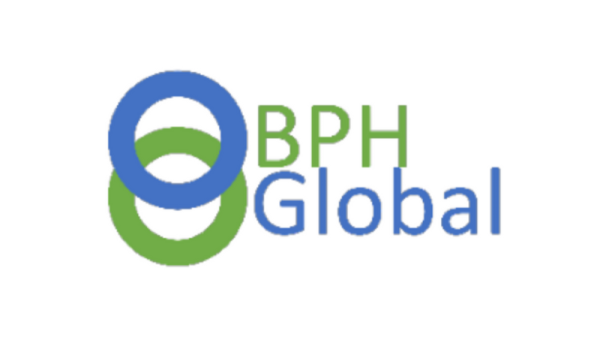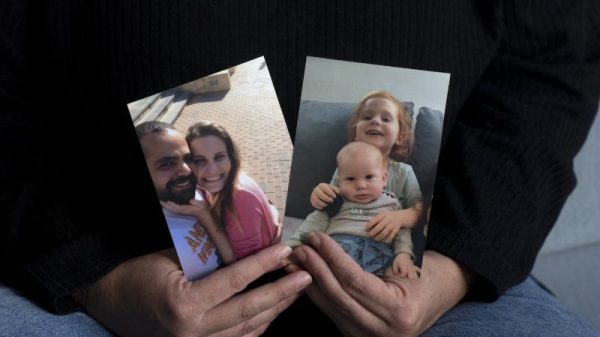Data demonstrates improvement in cardiac function and reductions in cardiac hypertrophy, remodeling, inflammation, and cell death – key underlying mechanisms in heart failure
Cardiol Therapeutics Inc. (NASDAQ: CRDL) (TSX: CRDL) (‘Cardiol’ or the ‘Company’), a clinical-stage life sciences company focused on developing anti-inflammatory and anti-fibrotic therapies for the treatment of heart disease, announced today the publication of research in the Journal of the American College of Cardiology: Basic to Translational Science (‘JACBTS’), titled ‘Cannabidiol Prevents Heart Failure Dysfunction and Remodeling Through Preservation of Mitochondrial Function and Calcium Handling’ (www.jacc.orgdoiabs10.1016j.jacbts.2024.12.009). This research was conducted by scientists from Tecnológico de Monterrey who, together with researchers from the DeBakey Heart and Vascular Center in Houston, TX, are collaborating with Cardiol on the development of the Company’s proprietary subcutaneous (‘SubQ’) formulation of cannabidiol, CRD-38, to treat heart failure with preserved ejection fraction. This common form of heart failure remains a leading cause of hospitalization worldwide and is associated with a five-year mortality that exceeds 75% in hospitalized patients.
‘We are very pleased to see these comprehensive new findings from our international research collaboration culminate in this publication in one of the JACC family of journals, which are some of the most widely read, most impactful cardiovascular journals in the world,’ said Dr. Andrew Hamer, Cardiol Therapeutics’ Chief Medical Officer and Head of Research & Development. ‘Heart failure progression is characterized by fibrosis, inflammation, and decreased contractile function of the myocardium, in part driven by mitochondrial dysfunction. The JACBTS publication provides fascinating new data that suggest a key mode of action of CRD-38 to potentially treat heart failure is through its ability to sustain cardiomyocytes, the muscle cells of the heart, and preserve mitochondrial function, the energy producing structures in cardiac cells. We look forward to incorporating this new information into our CRD-38 development program as we complete the IND-enabling work necessary to support advancing this novel drug candidate into clinical development.’
These newly published data demonstrate that pharmaceutically manufactured cannabidiol, administered subcutaneously, provides cardioprotection in a pre-clinical model of heart failure by improving cardiac function and reducing cardiac hypertrophy, remodeling, inflammation, and cell death, and provides additional important rationale for the development of CRD-38 as a new approach to the treatment of heart failure.
The JACBTS publication comprises results from multiple models of heart failure:
an in vivo model of angiotensin II-induced heart failure SubQ administration resulted in attenuation of cardiac fibrosis, hypertrophy, and inflammation, and also improved ejection fraction and cardiac output. an ex vivo analysis of heart failure ventricular myocytes from the in vivo model Cannabidiol preserved mitochondrial function and redox balance resulting in both cell shortening and calcium handling. an in vitro investigation in hypertrophic cardiac myoblast cells Cannabidiol provided a cardioprotective effect that may be dependent on peroxisome proliferator-activated receptor gamma (‘PPAR-γ’) activation, thereby decreasing mitochondrial calcium uniporter hyperactivity and preventing mitochondrial dysfunction.Together, these results highlight the importance of mitochondrial function and the role Cardiol’s small molecule drug candidate plays in protecting the heart against mitochondrial stress. The authors concluded that SubQ cannabidiol prevented inflammation and pathologic cardiac structural changes such as hypertrophy and preserved heart function. Cellular investigations suggest that this cardioprotective effect is achieved by the preservation of cardiac muscle cell shortening, sarcoplasmic reticulum calcium uptake, mitochondrial function, and redox balance which adds to the understanding of the cellular and molecular mechanisms by which CRD-38 can improve heart failure.
About Cardiol Therapeutics
Cardiol Therapeutics Inc. (NASDAQ: CRDL) (TSX: CRDL) is a clinical-stage life sciences company focused on developing anti-inflammatory and anti-fibrotic therapies for the treatment of heart disease. The Company’s lead small molecule drug candidate, CardiolRx (cannabidiol) oral solution, is pharmaceutically manufactured and in clinical development for use in the treatment of heart disease. It is recognized that cannabidiol inhibits activation of the inflammasome pathway, an intracellular process known to play an important role in the development and progression of inflammation and fibrosis associated with myocarditis, pericarditis, and heart failure.
Cardiol has received Investigational New Drug Application authorization from the United States Food and Drug Administration (‘US FDA’) to conduct clinical studies to evaluate the efficacy and safety of CardiolRx in two diseases affecting the heart: recurrent pericarditis and acute myocarditis. The MAVERIC Program in recurrent pericarditis, an inflammatory disease of the pericardium which is associated with symptoms including debilitating chest pain, shortness of breath, and fatigue, and results in physical limitations, reduced quality of life, emergency department visits, and hospitalizations, comprises the completed Phase II MAvERIC-Pilot study (NCT05494788) and the ongoing Phase III MAVERIC trial (NCT06708299). The ongoing ARCHER trial (NCT05180240) is a Phase II study in acute myocarditis, an important cause of acute and fulminant heart failure in young adults and a leading cause of sudden cardiac death in people less than 35 years of age. The US FDA has granted Orphan Drug Designation to CardiolRx for the treatment of pericarditis, which includes recurrent pericarditis.
Cardiol is also developing CRD-38, a novel subcutaneously administered drug formulation intended for use in heart failure – a leading cause of death and hospitalization in the developed world, with associated healthcare costs in the United States exceeding $30 billion annually.
For more information about Cardiol Therapeutics, please visit cardiolrx.com.
Cautionary statement regarding forward-looking information:
This news release contains ‘forward-looking information’ within the meaning of applicable securities laws. All statements, other than statements of historical fact, that address activities, events, or developments that Cardiol believes, expects, or anticipates will, may, could, or might occur in the future are ‘forward-looking information’. Forward-Looking information contained herein may include, but is not limited to statements regarding the Company’s focus on developing anti-inflammatory and anti-fibrotic therapies for the treatment of heart disease, the molecular targets and mechanism of action of the Company’s product candidates, the Company’s intended clinical studies and trial activities and timelines associated with such activities, including the Company’s plan to complete the Phase III study in recurrent pericarditis with CardiolRx, the Company’s plan to advance the development of CRD-38, a novel subcutaneous formulation of cannabidiol intended for use in heart failure, the newly published data providing additional important rationale for the development of CRD-38 as a new approach to the treatment of heart failure, and the JACBTS publication provides fascinating new data that suggest a key mode of action of CRD-38 to potentially treat heart failure is through its ability to sustain cardiomyocytes and preserve mitochondrial function. Forward-Looking information contained herein reflects the current expectations or beliefs of Cardiol based on information currently available to it and is based on certain assumptions and is also subject to a variety of known and unknown risks and uncertainties and other factors that could cause the actual events or results to differ materially from any future results, performance or achievements expressed or implied by the forward-looking information, and are not (and should not be considered to be) guarantees of future performance. These risks and uncertainties and other factors include the risks and uncertainties referred to in the Company’s Annual Report on Form 20-F filed with the U.S. Securities and Exchange Commission and Canadian securities regulators on April 1, 2024, as well as the risks and uncertainties associated with product commercialization and clinical studies. These assumptions, risks, uncertainties, and other factors should be considered carefully, and investors should not place undue reliance on the forward-looking information, and such information may not be appropriate for other purposes. Any forward-looking information speaks only as of the date of this press release and, except as may be required by applicable securities laws, Cardiol disclaims any intent or obligation to update or revise such forward-looking information, whether as a result of new information, future events, or results, or otherwise. Investors are cautioned not to rely on these forward-looking statements and are encouraged to read the Supplement, the accompanying Base Prospectus and the documents incorporated by reference therein.
For further information, please contact:Trevor Burns, Investor Relations +1-289-910-0855trevor.burns@cardiolrx.com
To view the source version of this press release, please visit https://www.newsfilecorp.com/release/241601
News Provided by Newsfile via QuoteMedia


























